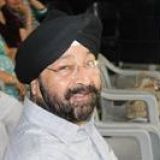Heart trouble or not, many exposed to radiation.
TOI TODAY.
NEW DELHI: If you have chest pain, should you opt for a CT angiogram right away or wait until the blood tests sound an alarm? What about stress cardiac imaging or a thallium test? In an era of lifestyle diseases and with a plethora of diagnostic tools at hand, fear and confusion drive several to take unnecessary tests many of which expose them to radioactivity.
In the run-up to World Heart Day on September 29, public health experts call for greater awareness about how to avoid needless tests. "Unethical practices in medicine have increased for sure. It is commonest in cardiology and cardiac surgery because that's a revenue-rich field. We come across many patients advised angioplasty or surgery when there is none required," says Dr A K Bisoi, senior cardiac surgeon at All India Institute of Medical Sciences. He confirms that hi-tech heart imaging is routinely prescribed to people lacking key risk factors such as family history, high cholesterol or diabetes.
Dr Ashok Seth, chairman, cardiovascular sciences division at the Fortis Escorts Heart Institute, says, "Hi-tech imaging techniques such thallium stress test or CT angiogram are costly and involve exposure to radiation. One may say the dosage of radiation is negligible but if repeated time and again it can cause health problems."
The average risk of radiation exposure in a single session involving thallium stress test or CT angiogram is less than five millisieverts, says radiologist Dr Harsh Mahajan. "In mid-2000, when CT angiogram was introduced in India, exposure levels were three to four times higher," he adds.
However, Mahajan warns against indiscriminate use of technology. "For preventive health check-ups in asymptomatic people, who do not have risk factors such as family history of heart disease, diabetes or hypertension, there is no need to have CT angiogram or even an ECG," he says.
The American College of Cardiology (ACC) has released a list of 'commonly used but not always necessary tests and procedures' addressing this issue. It recommends that stress cardiac imaging, used to capture images of the heart when a person is made to work harder, should not be part of a routine or initial assessment of a person's risk for heart disease if that person has no symptoms of heart problems, such as shortness of breath or chest discomfort.
"The tests are also inappropriate for people lacking key risk factors for heart disease, such as high cholesterol, high blood pressure, diabetes, have a history of smoking, and a family history of heart disease," says the ACC report.
The ACC recommendations also state that stress cardiac imaging is usually not appropriate for routine follow-up in people whose heart condition is stable or who have no symptoms.
"Doctors depend less on their clinical acumen and more on diagnostic tests and procedures these days. Only a handful spend time talking to patient to assess possible causes. Commercial interest overrides other concerns," a senior doctor at Safdarjung Hospital says. more











